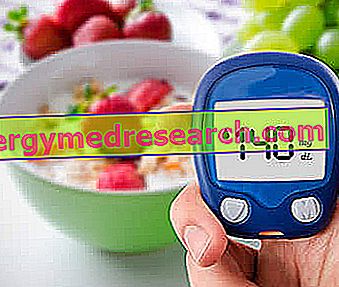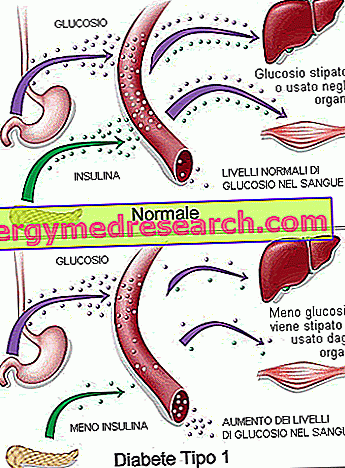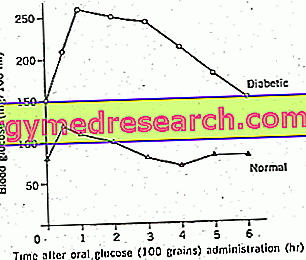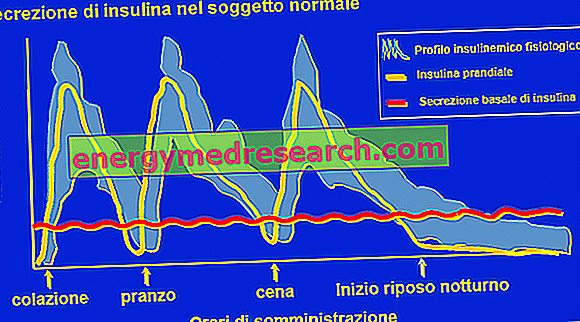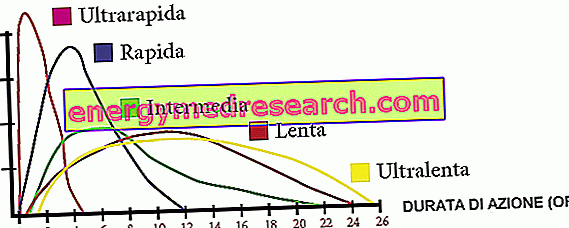Generality Diabetes, whose most appropriate name would be diabetes mellitus , is the best known metabolic disease that can affect humans. Its onset is related to insulin ; to be precise, it may depend on a reduced availability of insulin (whose production does not meet the body's needs), on the low sensitivity to the hormone by the target tissues or, finally, on a combination of these factors
Category diabetes
Generality Type 1 diabetes mellitus is a metabolic disease caused by the lack (or severe insufficiency) of insulin, a hormone produced by the pancreas. The classic symptoms mainly concern the increase in urination, thirst and appetite, and weight loss. The causes of severe or absolute deficiency of insulin in type 1 diabetes are related to an autoimmune reaction, which affects pancreatic cells responsible for hormone synthesis
Generality Glycosylated or glycated hemoglobin A1c (acronym HbA1c ) is a laboratory parameter that measures a particular type of hemoglobin in the blood. HbA1c values reflect mean blood glucose concentrations over the past three months . Therefore, glycated hemoglobin lets you know if your blood sugar has exceeded the "guard" levels in people with diabetes or at risk of becoming one. Th
Generality The presence of hemoglobin in the urine , defined by the medical term hemoglobinuria , can be the consequence of hemolysis (rupture) of the red blood cells at intravascular level (in the blood vessels) or intravesical (in the urinary bladder). The presence of hemoglobin in the urine must not be confused with hematuria , ie with the urinary loss of blood; in fact, hemoglobin is only one component of red blood cells, which in turn are just one of many corpusculated parts of the blood
Generality Postprandial blood glucose is a numerical value that indicates how much glucose is present in the blood two hours after the end of a meal. At a distance of 60-120 minutes from the end of a substantial meal (abundant breakfast, lunch or dinner) the blood sugar levels record the maximum peaks of the day
Generality The presence of glucose in the urine ( glycosuria ) is a characteristic symptom of diabetes mellitus, which looks at case from the adjective "mellitus" to the typical sweet taste taken from the patient's urine. Diabetes, on the other hand, means "passing through" and refers to polyuria, that is, to the large amount of urine produced by the patient; regardless of the cause of origin, glycosuria and polyuria are in fact two closely related conditions
See also: Polycystic ovary, insulin resistance and nutrition Generality We talk about insulin resistance when the body's cells decrease their sensitivity to the action of insulin; it follows that the release of the hormone, in known doses, produces a lower biological effect than expected. Let us recall, briefly, that insulin is an essential hormone to allow the passage of glucose from the blood to the cells, preventing its blood concentration (glycaemia) from rising too much
Generality Insulinemia is a medical term that identifies the amount of insulin present in the blood. The evaluation of this parameter, performed on a small blood sample, is particularly useful for investigating the origin of symptoms attributable to hypoglycemia , ie the lack of glucose in the blood
Since it began to be used in therapy in the 20s of the last century, insulin has gradually transformed diabetes from a deadly disease into a manageable condition with increasing ease. Initially, bovine and porcine forms were used, with important risks of sensitization and allergic reactions, but starting from the 1980s a pure and identical insulin to human was started to spread
What does it mean? There is talk of hyperglycemia when the rate of glucose in the blood borders on abnormality in excess: Glycemic values at FAST (mg / dl) * HYPOGLYCAEMIA <60 NORMAL 60-110 HYPERGLYCEMIA > 110 Fasting Fasting Blood Glucose (IFG) * 100-125 Diabetes > 126 * During the day, oscillations ranging from 60 to 140 mg / dl are considered normal. Th
See also: honey or sugar? Nutritional values honey and sugar The relationship between honey and diabetes is inherent in the adjective "mellitus", which means sweet as honey (in reference to the sweet taste of urine). One of the most frequently asked questions of diabetic individuals is whether or not honey is a good alternative to sugar. Al

